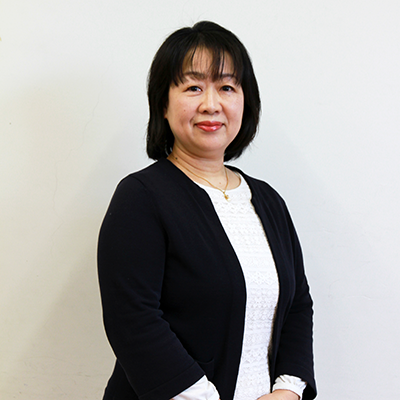Students study the four language abilities in a well-balanced way through a practical curriculum, aiming for enrollment at a university, graduate school or vocational college.
In Japanese Language Course, students gather from all over the world, and they are studying Japanese comprehensively according to their level of Japanese. Our originally developed textbooks and practical teaching method, develop abilities of “reading”, “listening”, “writing”, and “speaking”, have good reputation. And more, we prepare you homeroom system that enables you to receive guidance for study and course after graduation from homeroom teachers, so that you can concentrate in your Japanese studying. “Want to test ability of Japanese in Japan”, “Want to make Japanese friends”, “Want to experience ordinary life in Japan”, though purposes of students are different like this, they all have high enthusiasm of studying Japanese, and they stimulate each other and study Japanese.
Special Features of the Program
Course Characteristics 01
Team – Teaching, mainly by full-time teachers utilizing the direct method.
Course Characteristics 02
B.I.L.'s teaching method is characterized by our original textbooks used extensively by Japanese teachers worldwide and by the approach utilizing audio-visual devices. Our unique curriculum and study materials are based on its superb experience in education.
Course Characteristics 03
Instructions of skills necessary for after entering college.
Course Characteristics 04
Homeroom system. Students receive close guidance for study and course after graduation.
Curriculum
B.I.L. offers an efficient curriculum that develops reading, listening, writing and speaking skills according to each individual's Japanese language ability.
| |
Beginners
A1~A2
|
Intermediate
B1~B2-1
|
Advanced
B2-2~
|
| Reading |
- Students become able to read and understand easy texts written with words often used in everyday situations. (e.g. School announcements, emails from teachers and admission office)
|
- Students become able to catch gists and necessary information reading newspapers and documents written succinctly.
- Students become able to read, and understand the texts to some extent inferring things do not appear in the texts such as cultural backgrounds and feelings.
|
- Students become able to understand gists and find necessary information by taking a quick look at long complicated texts.
- Students become able to read and understand newspaper articles and other materials relating to Japanese issues and current affairs.
- Students become able to read and appreciate literary works.
|
| Listening |
- Students become able to listen to and understand conversations used basic phrases spoken clearly and slowly.
|
- Students become able to listen to and mostly understand explanations and lectures spoken clearly that are related to things they are interested in and general issues.
|
- Students become able to listen to and understand not only topics based on everyday situations but also lectures and presentations in various themes.
|
| Writing |
- Students become able to explain about themselves and things in daily situations. Also, they become able to write about their experiences and thoughts. (e.g. self-introduction and future goals)
|
- Students become able to write sentences -including reports, opinion statements and essayish sentences- about their familiar things and topics they are interested in by searching information and from their experiences.
- Students learn how to exchange emails using adequate words and phrases depending on the person.
|
- Students learn how to write logical compelling opinion statements containing objectivity.
- Students learn how to accumulate information reading set themes by themselves, analyze it, and structure reports using it.
- Students become able to accurately summarize long logical texts.
|
| Speaking(Conversation) |
- Students learn how to converse on themselves and daily situations simply. Also, they learn how to converse what they need in situations such as shopping and seeing a doctor.
|
- Students become able to discuss their familiar things and general topics with others while stating their own opinions and exchanging information.
- Students learn how to chat and exchange their opinions and comments using adequate manners of speech depending on the person.
|
- Students become able to converse on wide range of topics fluently and accurately for expressing their thoughts, exchanging information and discussing to proceed works with others.
- Students become able to communicate naturally using adequate manners of speech depending on the person and situations. Also, they hardly ever have something they can't express on what they want to say.
|
| Speaking(Presentation) |
- Students learn how to explain and give presentations about wide range of things related to themselves providing pictures and actual objects.
|
- Students become able to state their own opinions and give presentations while choosing key points and focusing on something so that listeners can understand it easily. Also, they become able to answer questions that are easily inferred.
|
- Students become able to research and summarize the information unknown to themselves and give detailed clear presentations that impress listeners. Also, they become able to respond to any questions.
- Students become able to research and verify about the themes they selected from what they are interested in while setting up a hypothesis, thus give presentations and write clearly in detail about the result.
|
| Vocabulary and Kanji |
Kanji Countries
- Students develop basic ability on how to read, write and use of kanji vocabularies while they learn the differences between kanji vocabularies in their own language and in Japanese.
Non-Kanji Countries
- Students learn the origin and structure of kanji, and develop basic ability on how to read, write and use of kanji vocabularies.
|
- Students develop ability on how to read, write and use of kanji vocabularies used in daily situations.
|
- Students develop sufficient kanji vocabulary ability that they are not hindered in everyday life or in studying vocational schools and universities in Japan.
|

